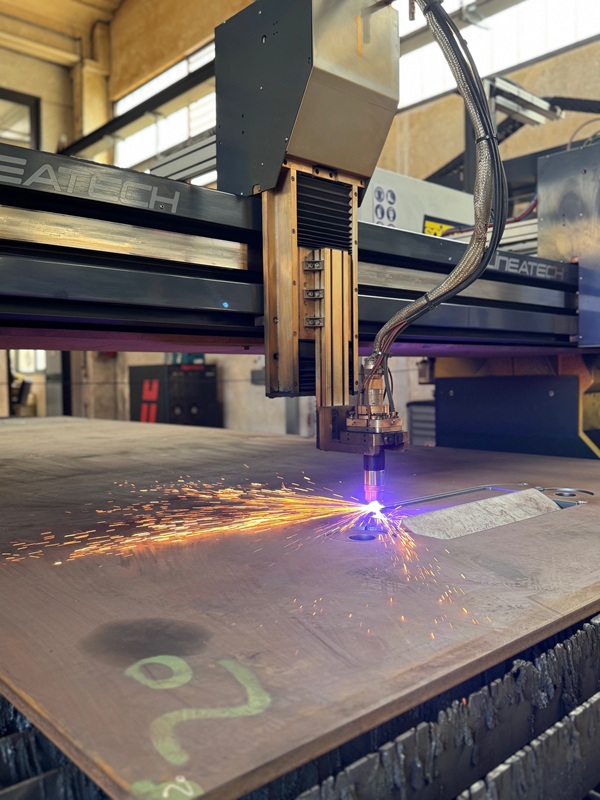
Founded in 1998 by Laura Pulcinelli under the name CTA, the company adopted Lantek Expert from the beginning to program plasma and oxy-fuel machines for thick materials (a choice recommended by their supplier). In 2021, with the introduction of laser cutting, the company made a structural leap, becoming Tecnotiberina and integrating Lantek MES Manager for more coordinated production control.
Today, the company produces components for major players in the railway sector and other industrial clients, always working under subcontracting agreements. The average monthly output is around 18,500 parts (a number that speaks for itself).
Integrated technology, concrete results
Production is centralized at a single site, where two family-run businesses operate: Tecnotiberina, focused on sheet metal cutting and processing, and Pulcinelli, which handles assembly, welding, and its own line of agricultural machinery, including grape harvesters. All major operations are managed in-house, with external support limited to turning and milling. Lantek Expert is used across all machines by the entire team.
Customer drawings arrive in DXF, DWG, or even PDF formats. From there, a tightly controlled process begins: drawing cleanup, automated nesting, scrap reuse, and production scheduling. “We nest parts from different customers and use remnants. It’s key to optimizing material use and keeping margins competitive,” explains Pulcinelli.
Faster quotes, clearer margins, more orders
One of the most significant transformations has been the digitalization of the quoting process. With Lantek, Tecnotiberina can now generate precise quotes based on real production data, a shift that has helped them win jobs they previously missed.
“We used to only build the prototype, but we could never secure the full production order. Now, thanks to accurate quoting and cost tracking per kilo, we win the complete job,” says Pulcinelli. Material prices are closely monitored, allowing the company to keep quotes updated and profitability under control.
Quotes currently cover only internal processes (cutting and bending) but actual production data is used to analyze margins and refine the commercial strategy. Tracking cost per kilo, which was once unthinkable, is now a decisive factor.
Software that runs through the entire company
“Lantek is essential because it runs through every process in the company,” says Pulcinelli. From production planning to final delivery, the software has enabled Tecnotiberina to evolve from a traditional setup to a connected, data-driven model where every decision is informed by real insights.
Technical support, training, and implementation guidance have all received positive feedback from the team. A robust platform, implemented methodically, has allowed the company to remain in full control: even as volumes, customer demands, and technical complexity continue to grow.